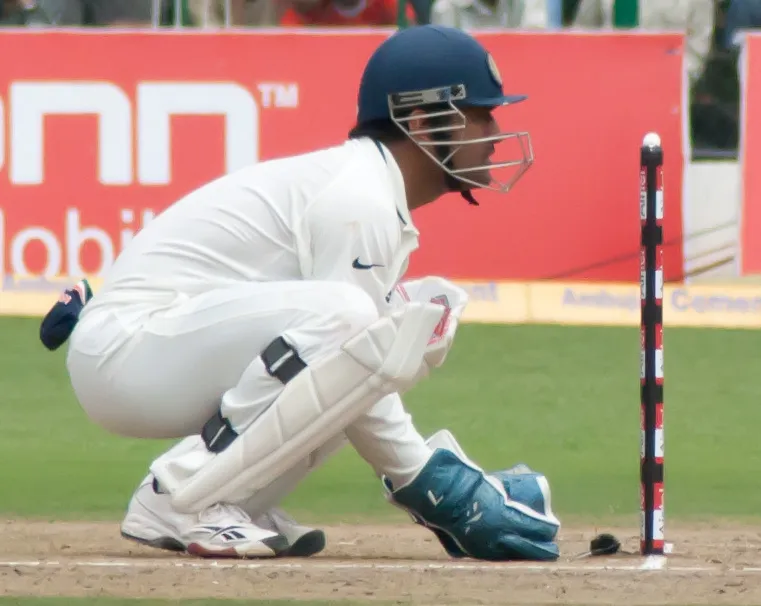Blame it on your own board, not the umpires, Mr Dhoni
MS Dhoni had reason to feel deflated by umpiring decisions that went against India in the Durban Test. India's mainstay Virat Kohli was given out to Dale Steyn at the start of the fifth day after the ball brushed his shirt sleeve. Imagine if this had happened to century maker Jacques Kallis when South Africa were struggling at 100 odd for three. There can be no doubt that the Kohli dismissal helped South Africa deliver the knockout blow to win the series 1-0.

But for MS Dhoni to express disappointment with umpiring decisions is strange. It is the Indian cricket board that refuses to adopt the Decision Review System. Senior batsman Sachin Tendulkar had consistently opposed it, which is not surprising because batsmen have traditionally enjoyed "the benefit of the doubt". Why the BCCI went along with that reactionary position is harder to fathom. Apart from improving the chances of getting decisions right, the DRS makes it difficult for a biased or corrupt umpire to spoil a match. We have had more than one exposure of fixing in the Indian and Bangladesh leagues involving umpires. In view of that, the Indian board, players and commentators should really be keen on the DRS, which allows umpiring decisions to be challenged and reviewed. Instead, they are resisting it tooth and nail!
The system is admittedly imperfect, and we have had a few nonsensical interpretations of the rules by blinkered third umpires during the just concluded back-to-back Ashes series. But in an overwhelming majority of cases, the DRS helped correct umpiring bloopers. The England captain Alastair Cook may trot out excuses for a 5-0 whitewash in Australia, but umpiring can't be one of them. Likewise, his counterpart Michael Clarke had no scope to blame umpiring for Australia's 3-0 loss in England earlier.
Laggards in technology adoption
Glitches in the system could have been ironed out by now if DRS had been made mandatory for all teams. But India's clout in the ICC has stymied that attempt more than once. It is left to individual cricket boards to decide bilaterally if they want to use DRS. As a result, India is able to opt out.
This is harmful in two ways: firstly, Indian inputs are not going into debugging the DRS; secondly, India is falling behind in learning how to use the system smartly. Now that Tendulkar has retired, the BCCI could do India a favour by reviewing its decision on the DRS.
Entrepreneurs too can relate to this need to be at the forefront of the technology adoption lifecycle, as innovators or at least early adopters. Unfortunately, the cricketing culture in India is far removed from that in Silicon Valley or Bangalore. BCCI and the Indian team will pay a price for being laggards in adoption of the DRS.
As for Dhoni, he should get behind the DRS or shut up about umpiring. To refuse to accept reviews and then cry about errors sounds ridiculous. Besides, by externalising the reasons for losing the series, India may brush under the carpet the problems in the team and leadership which prevented them from winning the first Test.
India's premier spinner Ravichander Ashwin averages over 75 runs per wicket in Tests overseas, and his inability to take a single wicket in Johannesburg was a key factor in the inability to force a victory with South Africa requiring 458 runs in 135 overs in the last innings. A fourth seamer or even Ravindra Jadeja would have been a better bet for India.
India's over-reliance on an ageing Zaheer Khan was also a mistake. He got only one wicket in that second innings in Johannesburg and that came via an umpiring error. Mohammed Shami was the most dangerous of India's bowlers, but Zak and Ishant Sharma always got the better end to bowl from.
There are lessons in these for future series, but they can only be learnt through introspection and admission of mistakes, and not by blaming the umpires.
It's a trap that's easy for us to fall into, as individuals or companies. To blame all and sundry, and think the whole universe is conspiring against us, instead of focussing on problems and improving ourselves.







